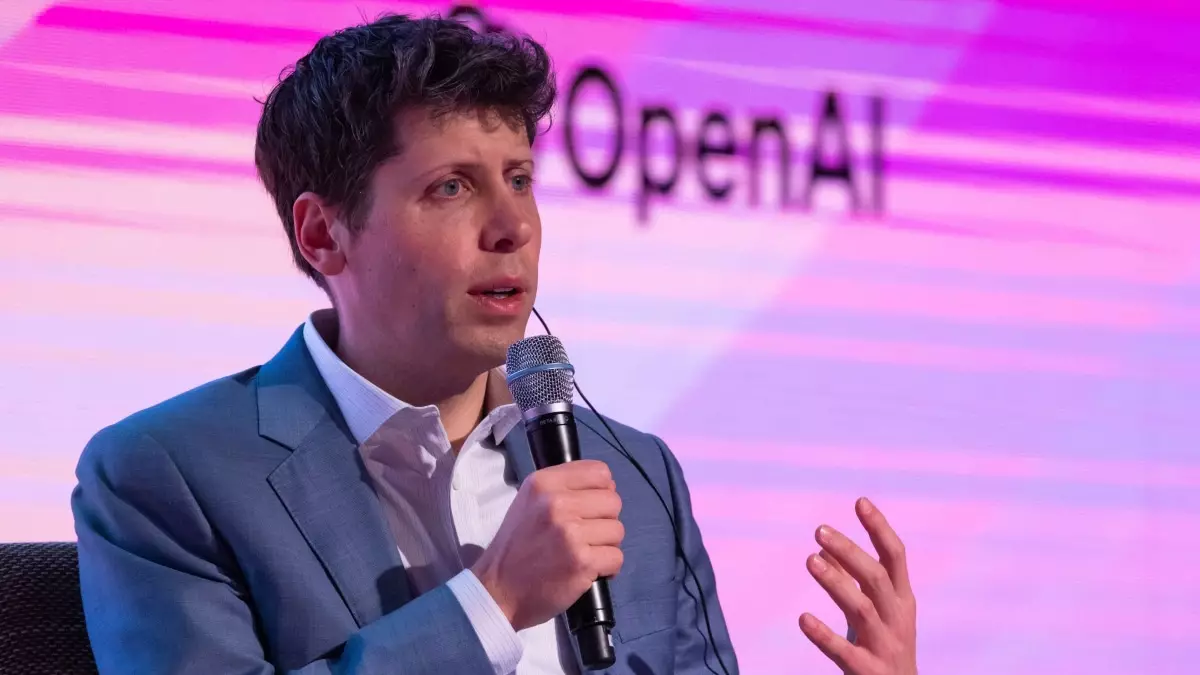In a decision that has sent ripples through the technology world, a federal judge has scheduled a trial for March 16, setting the stage for a fierce legal battle between billionaire titans Elon Musk and Sam Altman over the future of OpenAI. This clash isn’t just a simple legal dispute; it is emblematic of a larger ideological struggle surrounding the ethics and direction of artificial intelligence development. US District Judge Yvonne Gonzalez Rogers, who is presiding over the case, has been lauded for her intention to fast-track proceedings, ensuring that this high-profile trial does not languish in the judicial system for years to come. Musk’s lawsuit contends that OpenAI’s restructuring plans violate its founding principles. It raises significant concerns about transparency, governance, and the commodification of artificial intelligence, all of which deserve rigorous examination in the public sphere.
The Quest for Control
Musk’s concerns are rooted in his belief that OpenAI has strayed from its original mission as a charitable organization, particularly after receiving billions in funding from tech giant Microsoft. For Musk, this shift could represent a fundamental betrayal of the foundational ethos upon which OpenAI was established in 2015—a commitment to safe and equitable artificial intelligence. However, Altman’s vision for the organization appears to be quite different, as he seeks to transition OpenAI into a profit-oriented entity under the guise of a public benefit corporation. Musk’s legal challenge aims to question the legitimacy of this transition, but it also serves to spotlight a more significant issue: the evolving relationship between innovation and ethics in the tech industry.
Implications for the AI Ecosystem
OpenAI’s transformation into a for-profit structure raises essential questions not just for those directly involved but also for the broader tech ecosystem. As we nurtured the development of AI technologies, we also allowed corporate interests to creep into domains traditionally governed by ethical responsibility. The trial’s timing coincides with OpenAI’s ongoing negotiations to finalize its restructuring by the end of 2025, potentially altering the landscape of AI funding. With substantial backing from SoftBank and a current valuation inflating to approximately $300 billion, we must interrogate whether profit motives could undermine the very safety and ethical considerations that AI development ostensibly prioritizes.
Musk’s foray into the AI space with xAI, coupled with his acquisition of the social media platform X, has raised eyebrows. Critics argue that his motivations in the lawsuit may not only be about the ethical implications of AI but also rooted in a desire to destabilize a competitor. OpenAI has pushed back against Musk’s litigation, claiming it is an attempt to marginalize a successful competitor because he failed to re-obtain control of the founding venture. This legal skirmish is as much about business rivalry as it is about deeper philosophical questions concerning the direction of technology.
The Dangers of Corporate Control over AI
At the heart of this legal battle lies a critical issue: can we trust corporate entities to develop AI in a manner that prioritizes societal benefit over profit margins? Many technologists fear that the motivations driving large-scale funding will inevitably lead to prioritizing shareholder value over ethical innovation. OpenAI’s significant financial windfall could, ironically, empower it to conduct far-reaching research, but the terms of its funding also expose its governance to external influences that may not share its foundational principles.
Progress should not come at the expense of ethical considerations, especially in fields like AI, where the repercussions of poor decision-making can affect millions, if not billions, of lives. The narrative unfolding between Musk and Altman encapsulates a broader societal struggle over who holds the reins in guiding the future of artificial intelligence and how that power can be wielded responsibly. As these two influential figures press their claims against each other, society must scrutinize the implications that this legal battleground holds for the future direction of AI and its intertwining with corporate interests.
A Call for Vigilance
As the industry watches this landmark trial unfold, it serves as a clarion call for greater scrutiny into the ethical dimensions of AI development and funding. The stakes are high—not just for Musk, Altman, and OpenAI, but for the entire trajectory of artificial intelligence and its integration into society. We are still at a crossroads in deciding whether to progress as a society invested in the ethical treatment of technology or fall into a realm dominated by profit-driven motives. As we position ourselves amidst these challenges, our vigilance will be crucial in ensuring that humanity retains control over its most sophisticated creations.


Leave a Reply